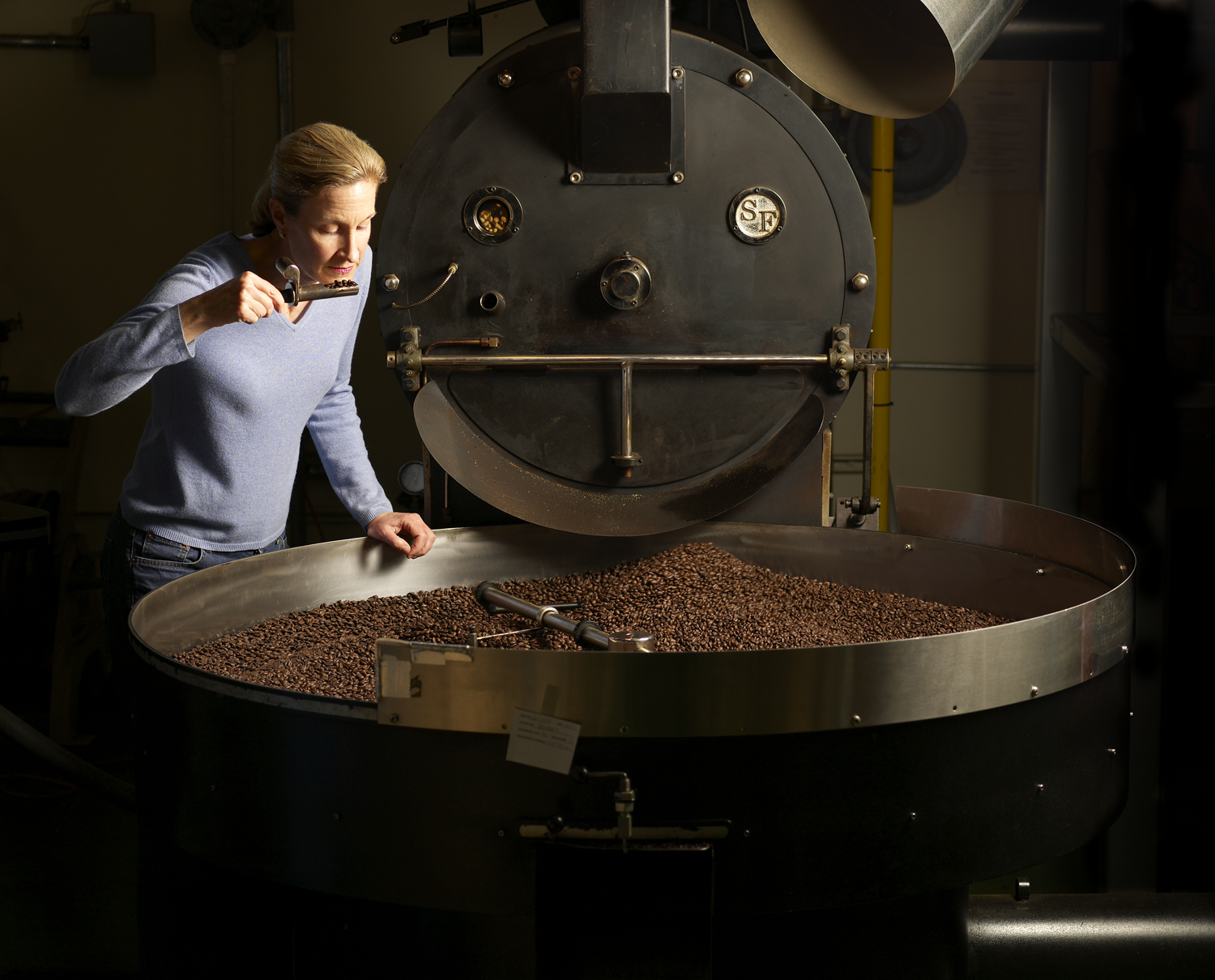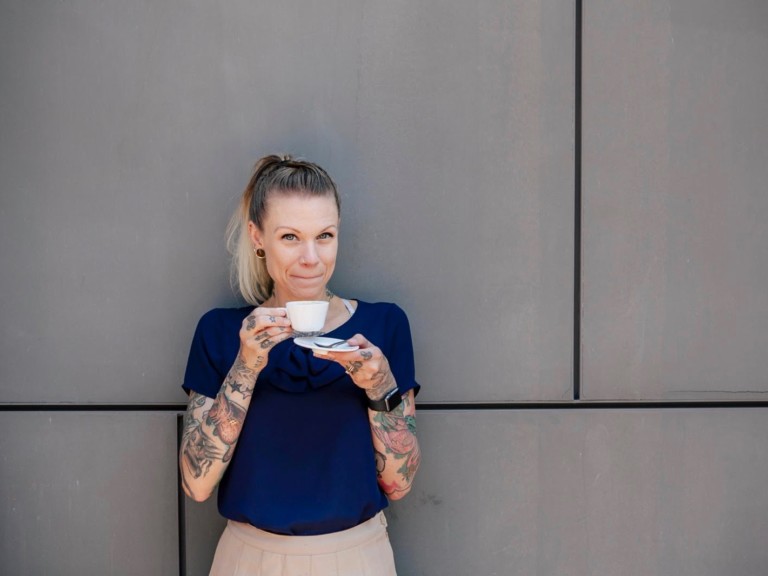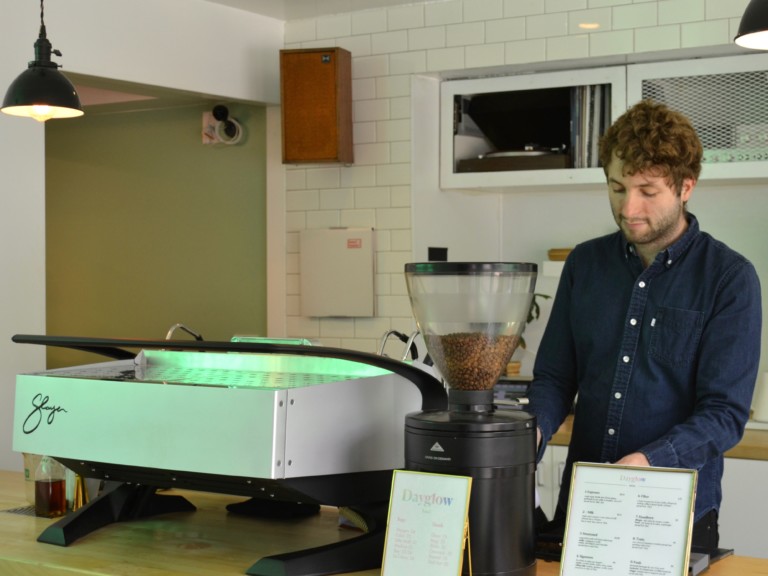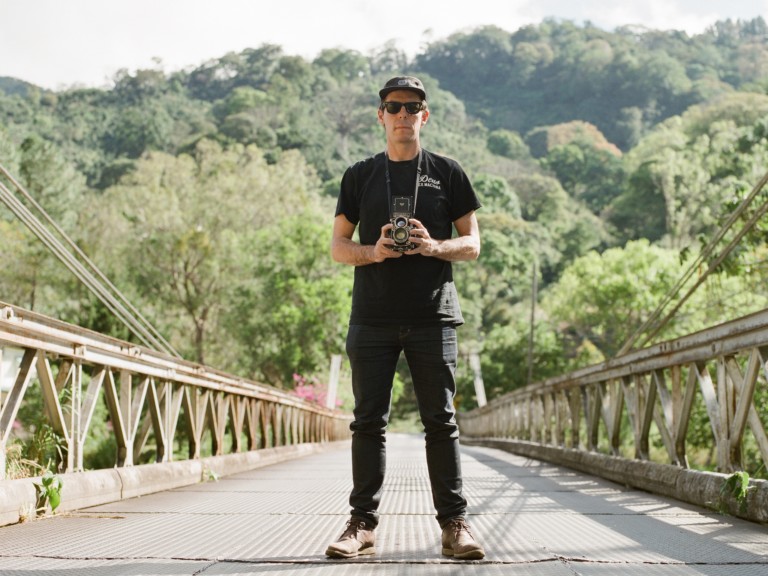Brooke McDonnell is the Master Roaster for Equator Coffees & Teas a Bay Area purveyor of fine coffees that she founded with Helen Russell that has received many accolades. Recent kudos include 1st Place at the 2013 Roaster’s Choice Competition in Boston. She has an inspiring collaborative relationship with Chef Thomas Keller of The French Laundry and looks at coffee as an act of creative expression rather than a product distribution network. Learn more about her commitment to quality coffee.
What’s the very first cup of coffee you ever remember drinking?
Instant coffee from a jar in my mother’s cupboard set aside for dinner guests – it had a fancy label with an impressively ornate emblem stating “Italian Espresso” – very seductive looking but profoundly disappointing.
At what point did you know you’d work with coffee for a living? Also, what were you doing for a living leading up to coffee?
The idea germinated about 20 years ago in Portland, Oregon, while sitting in Pioneer Courthouse Square spending numerous mornings drinking coffee at a Starbucks kiosk. Although based in the San Francisco Bay Area, my partner Helen and I were spending a brief chapter flipping houses in the St Johns area (not far from downtown Portland), buying a few modest fixer-uppers, upgrading and selling them while trying to figure out what we wanted to do with our lives.
What inspired you to start Equator Coffees & Teas?
It evolved from a 2 year stint in retail: following our Portland adventure in 1993, we returned to the Bay Area on a mission – create an espresso bar experience in the Bay Area like the one up north. We managed to secure two locations and operated two espresso carts, each in the lobbies of corporate office buildings. After a couple of years, we were hungry to move on and explore other aspects of coffee; particularly the craft of roasting, which has an appeal to some of us creative solitary types. Our espresso carts with their commissary locations and leases were snapped up quickly by a colleague and the transition to roasting began in 1995.
What would you say are some of the characteristics that distinguish Equator Coffees?
We are layered: 1) we provide a high-touch “concierge” approach to our wholesale customers – one that departs from what is typically provided to retailers, 2) we have an exceptionally well-curated coffee program, 3) we provide micro-credit loans to several of our farm partners and support an ongoing food security project in East Africa, 4) we co-own a farm in Panama, 5) we have grown strictly on word-of-mouth referrals without poaching or soliciting other accounts which is unique in the industry, 6) we are a B Corporation.
What motivated you to start roasting that very first time?
As mentioned earlier, it felt like a natural evolution in our coffee careers. There was the desire to get closer to the source. Also, roasting felt more artisanal and creative then operating the espresso carts. We wanted to provide transparency since there was so little information about the roasted coffee sold to retailers in 1995 – the roasting business felt secretive and proprietary.
How did your very first batch turn out?
My 3-pound batch on our 2.5 kilo Petroncini turned out very well, thank you.
Who else in the specialty coffee community do you look to for inspiration, guidance or advice?









Leave a Comment